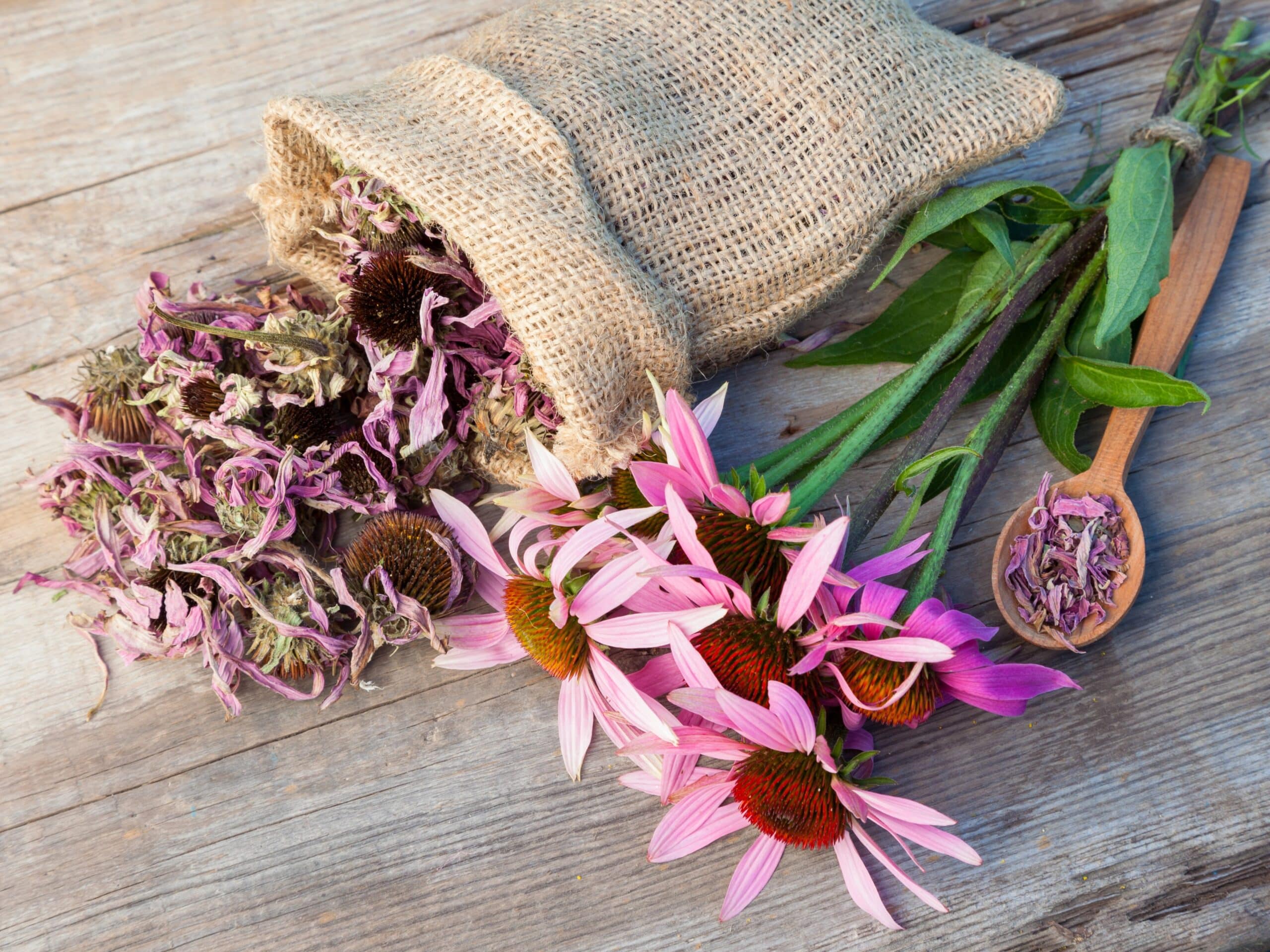Echinacea/Coneflower belongs to the daisy family, it is a flowering plant that commonly grows wild across eastern and central America. Echinacea has been used by Native Americans for hundreds of years to treat wounds and infections, it was even used to treat malaria, syphilis, scarlet fever, and blood poisoning before the advent of antibiotics.
Use of the medicinal plant have been pushed aside in modern day in favor of pharmaceuticals which appear to be more profitable in American, but Echinacea still remains popular in Europe and among natural health practitioners.
Echinacea can help to treat and prevent the common cold, it has been shown to shorten cold duration by on average 1.4 days. Simply drinking Echinacea tea at the first signs of a cold or flu can help, studies have shown it also reduces the odds of developing a cold by 58%.
Taking Echinacea daily for 2 weeks has been shown to increase immune activity such as greater white blood cell counts. Echinacea has antioxidant effects, and studies have shown extracts can stimulate immune function in healthy cells as well as those taken from those with chronic fatigue syndrome and AIDS.
Echinacea was shown to be just as effective as Tamiflu with far fewer side effects in a double blind randomized study involving 473 participants with early influenza symptoms.
Echinacea can help to reduce the side effects of chemotherapy induced leukopenia, in one study those that took the compound were found to have white blood cell counts that were 50% higher than those who did not.
Studies have shown Echinacea to help support the health of red blood cells; in a 28 day study a group of healthy men took 8,000 milligrams of Echinacea daily and were found to have had a 63% greater amount of a hormone that promotes red blood cell formation by bone marrow.
Echinacea is believed to be able to help prevent the negative health effects in those who have been exposed to radiation; a Serbian study found taking Echinacea led to an increased number of defective cells that self destructed among workers exposed to radiation.
Echinacea can be used topically which has been shown to help improve skin hydration significantly enough to reduce the appearance of wrinkles by up to 14.92%.
These are just a few of the scientifically proven uses for Echinacea making it worth keeping it around for use to help combat health concerns in a more natural and gentle way. Echinacea can be found as an extract, tablet, tincture, or dried herb so it is easy to pull out of the cabinet at any time you feel a cold or flu coming on.




